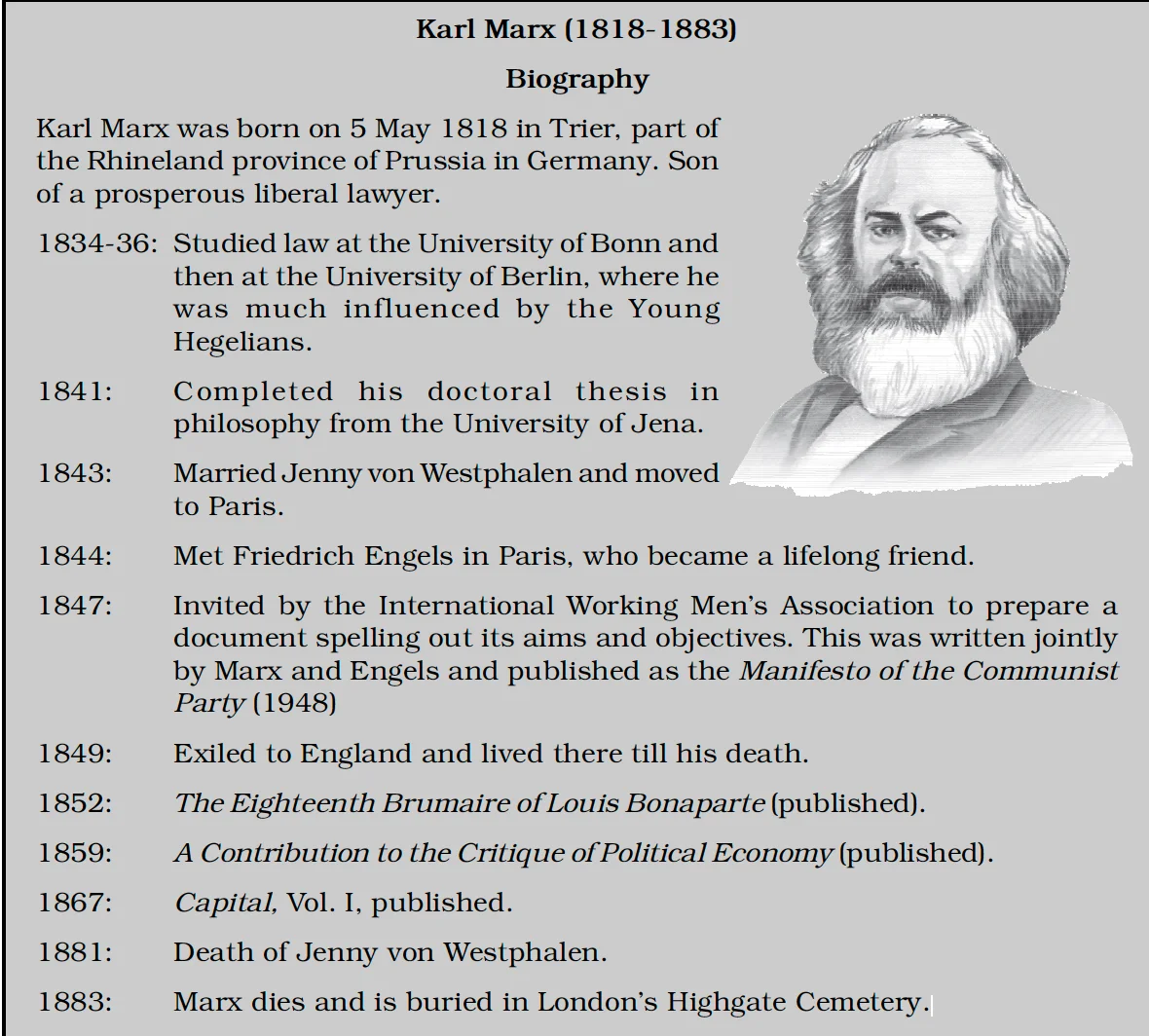![]() 9 Dec 2023
9 Dec 2023
Emerging from diverse historical, cultural, and philosophical contexts, Western Sociologists have laid the groundwork for key sociological concepts and theories. Their inquiries into social structures, institutions, and human behavior have not only influenced academia but have also had profound implications for our comprehension of societal dynamics.
This introduction seeks to explore the lives, ideas, and enduring legacies of some of the most influential Western sociologists who have left an indelible mark on the field.
Karl Marx in Sociology: A Revolutionary Force and Lasting Legacy

|
POINTS TO PONDER Karl Marx’s interpretation of society was based on his view of a class divided society where classes were divided based on their economic positions. Do you think such a division of society based on class exists in India? Is function specialization within caste similar to economic classes? |
|---|
How did Karl Marx Classify Individuals Based on Production Processes?
<div class="new-fform">
</div>